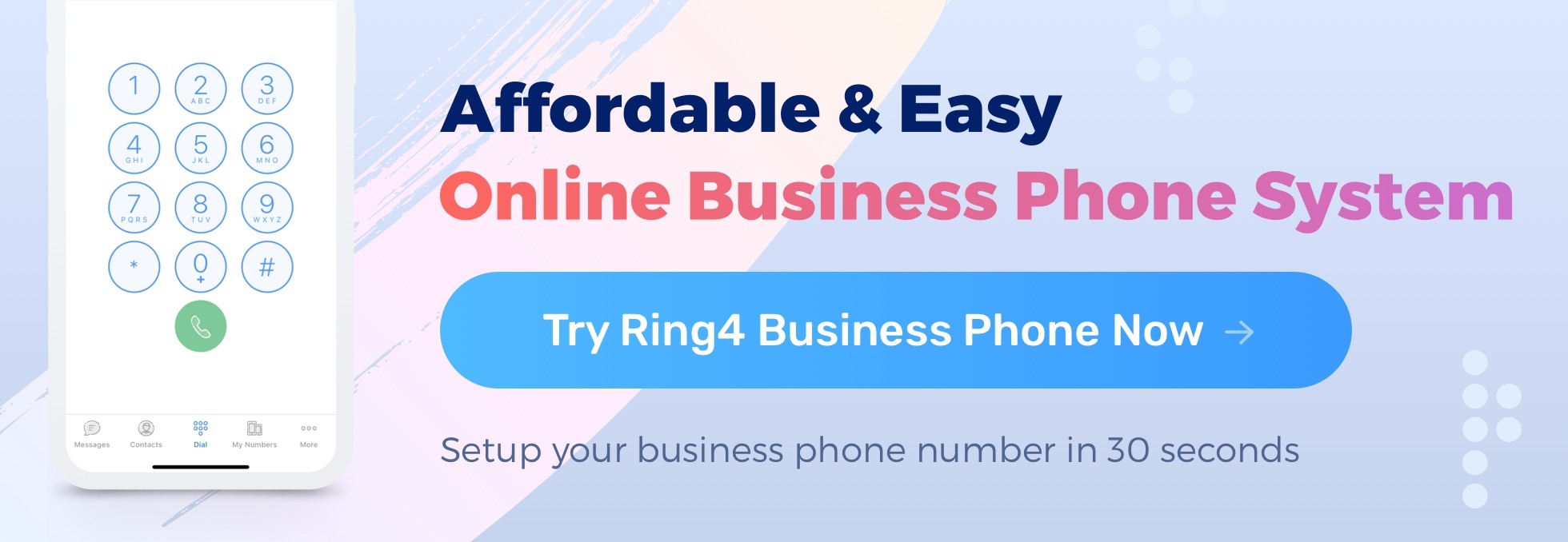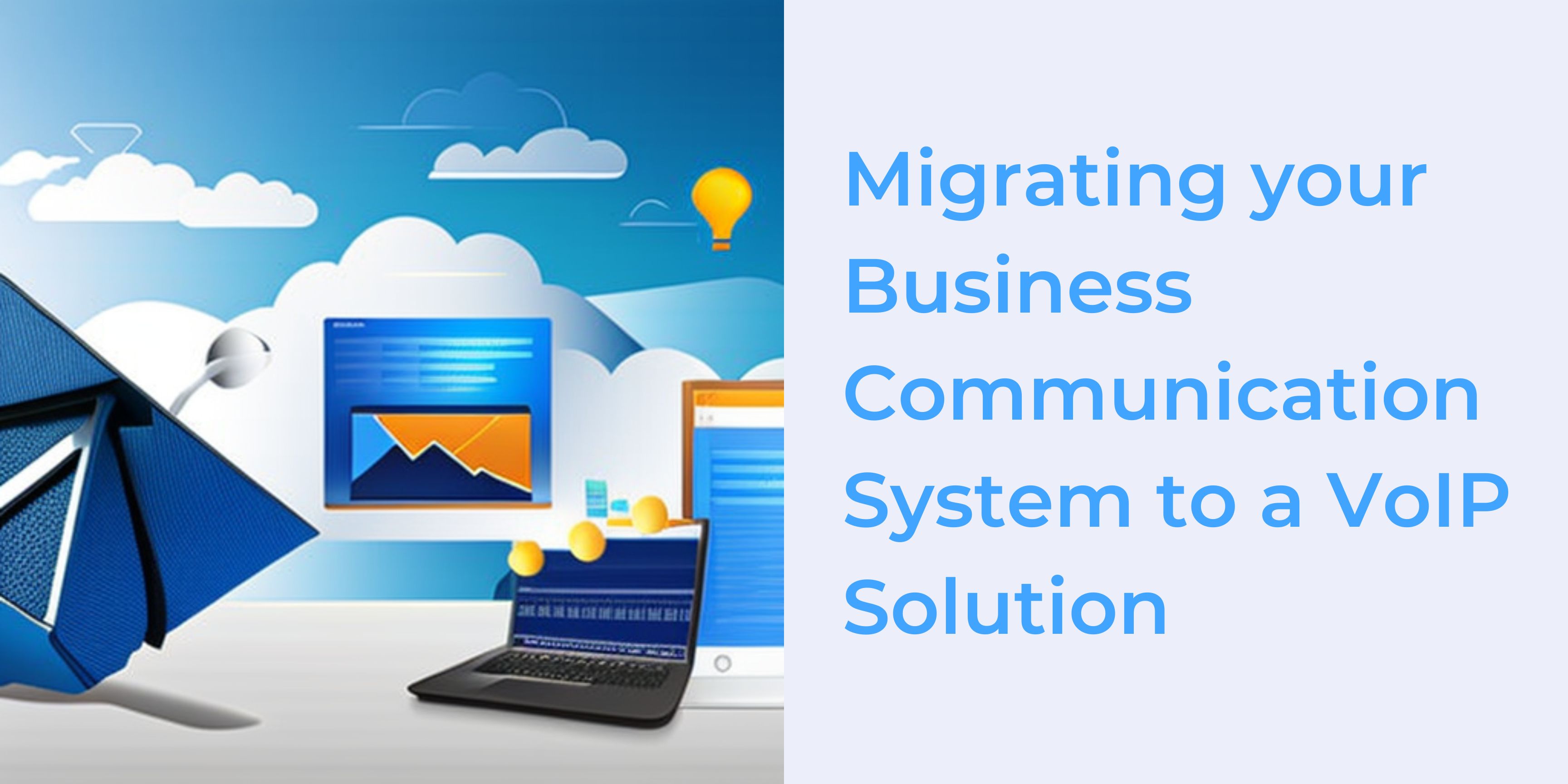Migrating your business communication system to a VoIP solution can have a significant impact on the efficiency and cost-effectiveness of your operations. VoIP, or Voice over Internet Protocol, is a technology that allows for the transmission of voice and other multimedia communications over the internet. Unlike traditional phone systems, which rely on dedicated copper or fiber-optic lines, VoIP uses the same internet connection that your business likely already has in place.
Reduce Your Business Communication Costs
One of the key benefits of VoIP is that it can significantly reduce the cost of business communication. Traditional phone systems often require expensive equipment and monthly fees for phone lines and long-distance calling. With VoIP, however, all you need is a reliable internet connection and a compatible device, such as a computer or smartphone, to make and receive calls. Additionally, many VoIP providers offer flat-rate pricing plans, which can be a cost-effective option for businesses that make a lot of long-distance or international calls.
VoIP is Scalable
Another advantage of VoIP is that it is highly scalable. As your business grows, it can be difficult and costly to add more phone lines and equipment to your traditional phone system. With VoIP, however, you can simply add more users to your account, and they can start making and receiving calls right away.
Easily Track Customer Interactions
VoIP also offers a wide range of advanced features that can help improve the efficiency of your business communication. For example, many VoIP providers offer virtual receptionist and auto-attendant services, which can help route calls to the right person or department, even when your employees are not available to answer. Other features, such as voicemail-to-email, call forwarding, and call recording, can also be useful for businesses that need to keep track of important customer interactions.
In addition to these benefits, VoIP also offers a number of other advantages that can help your business save time and money. For example, many VoIP providers offer integrations with popular business tools like CRM software, which can help your sales and customer service teams work more efficiently. Additionally, VoIP is often more reliable than traditional phone systems, as it is less likely to be affected by power outages or other disruptions.
Things to Consider if You Opt for VoIP Phone Systems
When it comes to migrating your business communication system to a VoIP solution, there are a few things to consider.
First, it is important to ensure that your internet connection is reliable and fast enough to support VoIP.
This is because VoIP uses the internet to make and receive calls, so a slow or unreliable connection can result in poor call quality.
Secondly, you will need to choose a VoIP provider that offers the features and pricing that are right for your business.
There are many VoIP providers on the market, so it is important to do your research and compare the different options available.
Third, you will need to make sure that you have the right hardware and software in place to use VoIP.
This may include VoIP phones, headsets, and other equipment, as well as software that can be used to make and receive calls on your computer or smartphone.
Finally, you will need to train your employees on how to use the new system.
This may include showing them how to make and receive calls, as well as how to use the different features that are available.
FAQs We Regularly Hear About Migrating to VoIP
Do most businesses use VoIP?
According to Tech.co, around 31% of businesses use a VoIP solution for their phone service. VoIP technology is an efficient and cost-effective solution for businesses of all sizes. Businesses choose VoIP because of the many advantages over traditional telephone systems that we’ve covered in this post.
Is it difficult to migrate to VoIP?
The best answer to this is that it depends on the service provider you use. If you choose Ring4’s business phone app for example, you can have your business phone number set up on your mobile device in minutes. If you choose a provider that has to install hardware and software on the other hand, your onboarding experience could be significantly more work - not to mention more expensive.
Can’t I just keep using my traditional phone? Why is everything going online?
Sure, you can of course keep using your traditional business phone solution. We get it - change is hard for some people and sticking with what you’re currently using may seem like the easier choice. But, if you’re trying to cut costs with your business, you might want to look at the savings a VoIP business phone solution can offer you.
What if the internet goes down? Can I still make calls?
Again, this depends on the service provider you choose. If you opt for a VoIP app that works on your mobile device, you could switch to your mobile service provider’s data and still make and receive calls. If however, you’re using a system that requires you to be directly connected to the internet, you won’t be able to make calls if there is an internet outage.
Is VoIP as good as a landline?
In truth, this can vary as well. Some VoIP service providers do experience spotty connections, and lower sound quality. Our best advice is to read reviews before committing to a provider. And, read your contract before signing! Some companies charge cancellation fees that make business owners feel trapped into sticking with the phone system they chose.
Is VoIP Right for Your Business?
In conclusion, migrating your business communication system to a VoIP solution can have a significant impact on the efficiency and cost-effectiveness of your operations. By using the internet to make and receive calls, VoIP can help reduce the cost of business communication and provide a wide range of advanced features that can help improve the efficiency of your business communication.
If you’re interested in trying VoIP for your business, the best on the market for your dollar is Ring4. Click here to try our business phone app completely free!

